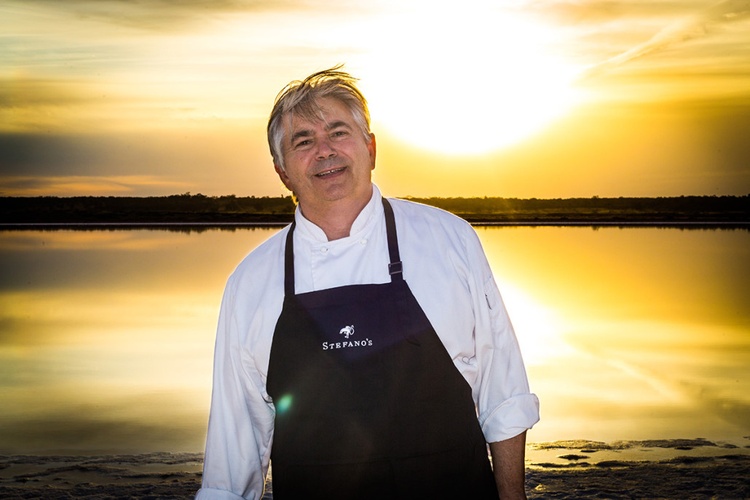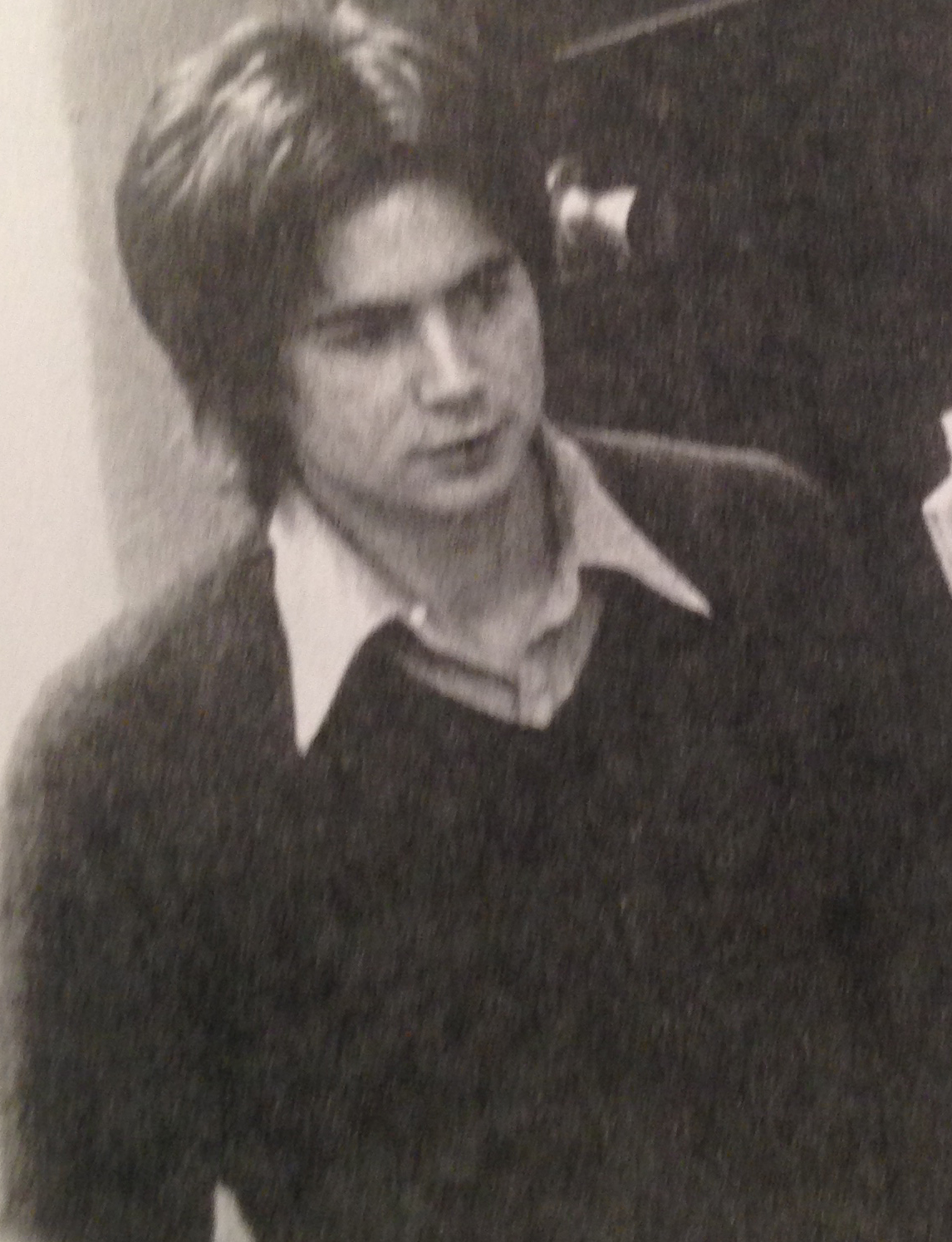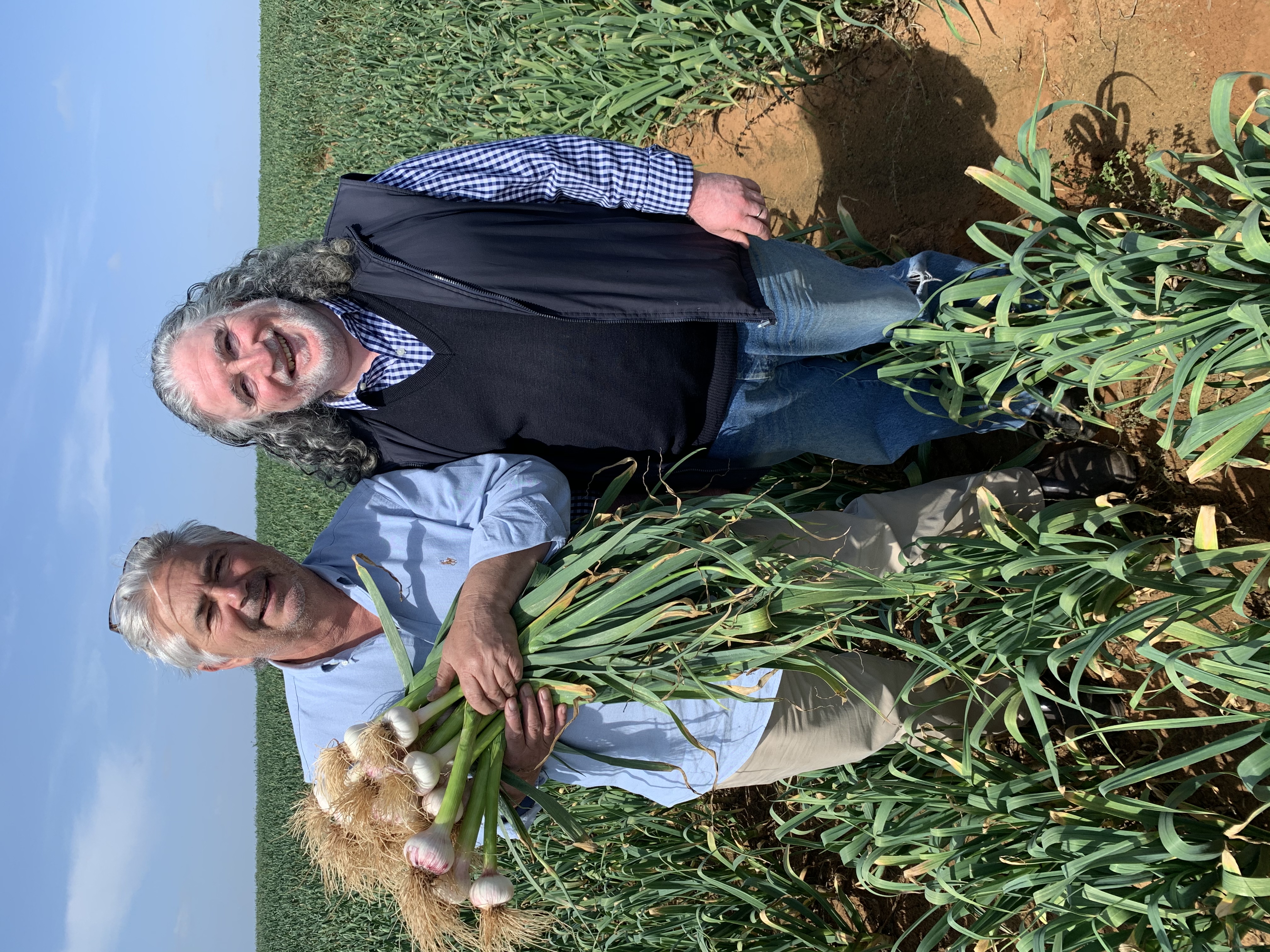Part of it reads:
Hey, rose-red city of the tragic fountain, of the expensive brink, of crescent clubs, of flags basil-white-and-tomato, I love how you were invented and turned on: the city as equipment, unpacking its intersections.
That poem, Oasis City, “tells you a lot about the town”, according to the award-winning chef.
He’s made the town of Mildura, on the edge of the iconic Murray-Darling River, his refuge and his restaurant, Stefano’s, strikes the perfect balance between tradition and innovation.
Achieving success and creating a better life were the goals of many young migrants fleeing post-war hardship and unemployment in the ‘40s and ‘50s.
But De Pieri, who arrived in Australia in 1974, was motivated to migrate by nothing more than his ideas.
Today, his restaurant boasts many prestigious awards and the support of myriad patrons.
De Pieri continues to evolve in the world of hospitality with the hope of always offering a range of new ideas and sparking greater interest in Mildura.
Originally from Casier, in the lower Venetian plain along the Sile River, De Pieri decided to follow in the footsteps of his brother, Sergio, at a young age.
“He was an organist, an unusual profession for a period in which everyone was a labourer or truck driver,” De Pieri says.
“The re-evaluation of the arts in Italy would only come in 1972; whereas in Australia, he could really be a musician.
“In 1971, after 10 years, he decided to return home, to obtain a professorship at the Conservatory of Music in Venice, where he’d studied.
“I, on the other hand, was in a phase of transition and it was he who encouraged me to move to Melbourne.”
Stefano De Pieri shortly after his arrival in Australia, in 1974
After studying at the Sydney Road Community School in Brunswick and graduating in Politics and Italian Studies from the University of Melbourne, De Pieri kicked off his career at the fortnightly Italian newspaper Nuovo Paese, which was affiliated with the old Italian Communist Party (PCI).
“We were Il Globo’s opposition and political opponent,” he laughs.
“Nino Randazzo later modified many of his ideas.
“Over time we became closer, but those were the years of Italian politics in which we were divided.”
Although his passion for culinary excellence had already begun to emerge, following a car accident, De Pieri looked back on his past and instinctively decided to pursue a career in the political sphere, working for the Victorian government, first as a private secretary to Minister Peter Spyker and then as an adviser to numerous Ethnic Affairs Ministers.
“I was actually a gofer,” he jokes.
“I had a good income and made extraordinary contacts, but I wasn’t irreplaceable.
“It was a time of new ideas and I was determined to enter Parliament; the members of the Labor Party elected me, but when it came to combining their votes with those of the unions, there was a political division for which I was not responsible, but of which I was a victim, and therefore I didn’t get the job.”
Fortunately, love led De Pieri to Mildura.
The family of his wife Donata Carrazza, whom he married in 1991, owned the town’s historic Grand Hotel.
Realising the potential of the region, enriched by agriculture and culture, De Pieri was inspired to write a book that would include his food memories from his native Veneto and the produce of Mildura, entitled A Gondola on the Murray.
He had extraordinarily rediscovered a slice of his birthplace in a corner of Australia, and while he tells me about his first steps, I’m moved by his poise, his clear vision of life and self-expression, and his extreme passion for traditional Italian cuisine and products.
Perhaps it was his hometown, Casier – a name that derives from the Latin casearius, meaning “pertaining to cheese”, because it was known for its production of cheese in Roman times – that inspired him and pushed him to recreate that original oasis in a new and distant place.
Stefano De Pieri (left) with Nick Diamantopoulos, the chief executive of Australian Garlic Producers
“The orange groves, olive trees, palm trees and eucalyptus trees are perhaps much more reminiscent of a Sicilian plain than a Venetian one, but the presence of the Murray River, just like the Sile in Venice, conceptually brought back many childhood memories,” he explains.
“I let my book circulate among family and friends and presented it to many publishers, but at the time no one had heard of me and, above all, no one had heard of Mildura.
“I persisted until someone from the ABC read the book and saw the opportunity to create a television program that featured Australia’s still little-known treasures.
“Eating is much more than being fed: behind food there are producers, the land, seasonal rhythms and people with emotions.
“Authenticity and nostalgia are at the centre of everything.”
From that moment on, over the last 30 years, De Pieri has created a labyrinth of old cellars, “cool rooms” and narrow tunnels flanked by wooden chairs and tables; on the walls of his restaurant there’s also a black and white photo of the Mildura Writers Festival – which he founded – depicting Helen Garner and Les Murray posing on the steps of an old log cabin.
With the help of others, De Pieri pioneered the introduction of Prosecco and wines such as Pinot Grigio, Nebbiolo, Barbera, Ribolla, Falanghina, Nero d’Avola and Sangiovese in Australia.
“Australian wines are excellent, but you can’t drink a Shiraz at 14.5°C with spaghetti cacio e pepe,” De Pieri says.
“Ours are delicate, light wines to be savoured.
“After all these years, I think that Italian cuisine, without engaging in nationalism, is basically good honest food, because it comprises freshness and a few essential elements: excellent olive oil, garlic, fresh tomatoes and parmesan.
“An Indian friend of mine often prepares curry for me, which I love very much, and the recipe calls for at least 20 ingredients... in the end I get bored!
“We Italians, on the other hand, have invented fast cooking, that’s unpretentious and features a few excellent ingredients.
“There are Italian chefs who make very complicated dishes, but that’s not me.”
Following his restaurant’s first hats from The Age Good Food Guide, along with myriad other awards, and his status as celebrity chef, De Pieri was also elected a councillor for the Mildura Rural City Council in the last local elections.
“In the ‘60s and ‘70s, Mildura was an explosion of events; it was the cradle of art in Australia,” De Pieri concludes.
“I’d like this town to assume a more rigorous cultural policy than in recent years.
“The city has grown immeasurably, diversifying itself more and more, and the moment has come to adapt to different times with a new perspective.”














